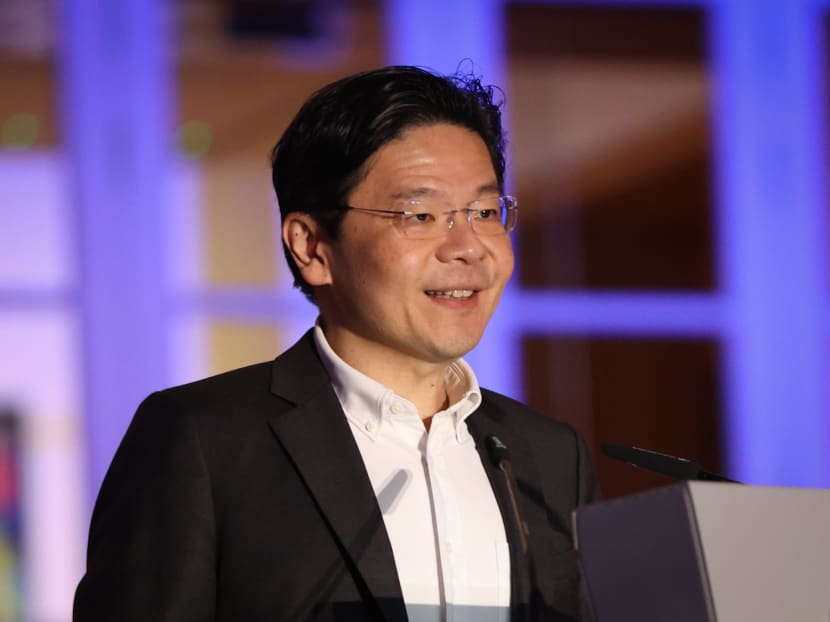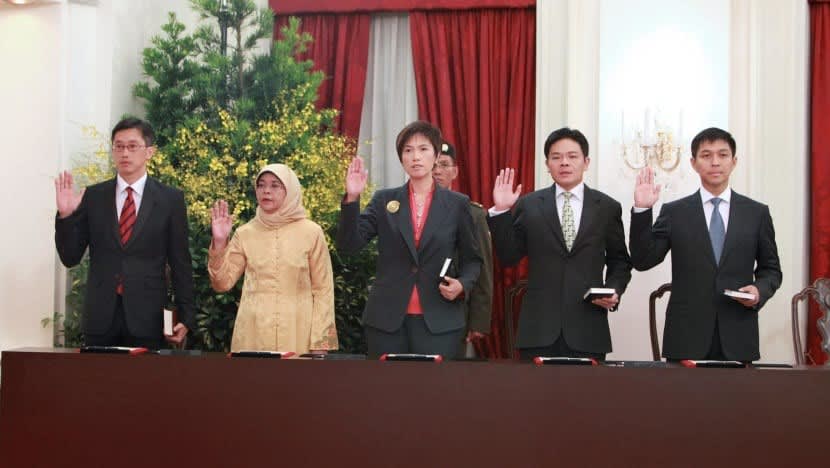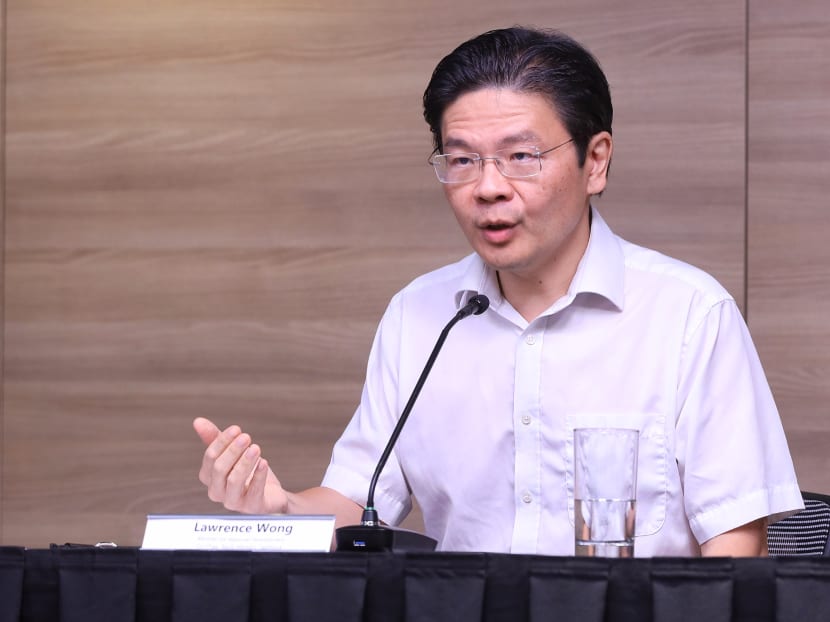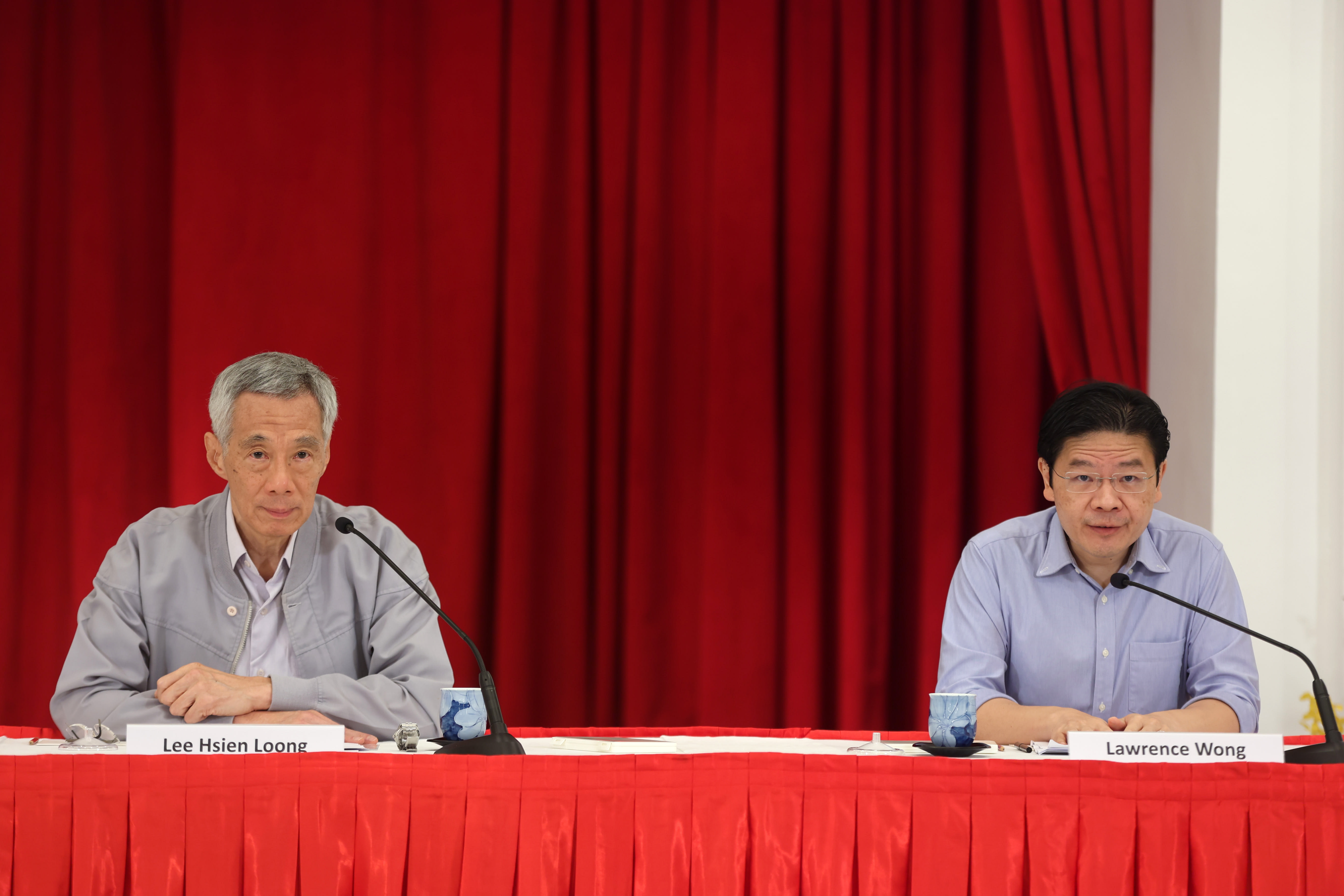What we know about Singapore's 4th prime minister Lawrence Wong
SINGAPORE — A beaming Deputy Prime Minister Lawrence Wong had declared at a People’s Action Party (PAP) convention last November: “I am ready for my next assignment."

Deputy Prime Minister Lawrence Wong speaking at the Singapore Conference on artificial intelligence at The National Gallery on Dec 4, 2023.

This audio is AI-generated.
SINGAPORE — A beaming Deputy Prime Minister Lawrence Wong had declared at a People’s Action Party (PAP) convention last November: “I am ready for my next assignment."
“I am all in, heart and soul,” he added, saying that he has been working hard to get ready for what would be the “biggest responsibility” of his career — to take over the baton from Prime Minister Lee Hsien Loong as Singapore’s next leader.
Now, the assignment has come as Mr Lee announced his retirement on Monday (April 15).
Mr Wong will officially take over the leadership reins on May 15, when he becomes Singapore's fourth prime minister.
RISE THROUGH THE RANKS
The 51-year-old entered politics in 2011 after being elected as a Member of Parliament in West Coast Group Representation Constituency (GRC). He was given his first political office two weeks after the election — as minister of state for education and defence.
In the 2015 General Election, Mr Wong moved to contest in the new Marsiling-Yew Tee GRC, where he has been anchor minister ever since.

By then, he had risen steadily through the ranks with positions in various ministries, including the Ministry of Culture, Community and Youth where he was appointed acting minister in 2012 and made full minister two years later.
After the elections in 2015, he moved to head the Ministry of National Development where he stayed on until July 2020.
In 2020, Mr Wong was tasked to co-chair Singapore’s multi-ministry Covid-19 task force with then-Health Minister Gan Kim Yong.
Together with Mr Gan, and later, new Health Minister Ong Ye Kung, he helmed the country’s pandemic response and fronted key announcements at frequently held press conferences.

Political observers later said that it was Mr Wong’s steady leadership style during Covid-19, clear explanation of policies and grasp of details that put him in pole position to take over as the country’s next leader when Deputy Prime Minister Heng Swee Keat took himself out of the running for the top job in April 2021.
Mr Heng, then 60, had said that his age and “too short a runway” would not be in his favour should he become prime minister after the pandemic.
Mr Wong, who was then education minister, took over the Ministry of Finance from Mr Heng in the ensuing Cabinet reshuffle, providing the first hint of his frontrunner position given how the high-profile finance portfolio has traditionally been helmed by PAP heavyweights.
Questions about political succession were finally laid to rest in April 2022 when Mr Wong was named as the leader of the PAP’s fourth-generation, or 4G, team.
Two months later, he was promoted to deputy prime minister in another Cabinet reshuffle, while holding on to his finance portfolio.
Since cementing his standing as Singapore’s next prime minister, Mr Wong has fronted major speeches, such as delivering the keynote speech at the May Day Rally last year in place of Mr Lee.
He has also launched the Forward Singapore exercise, which provided a glimpse of how he and the 4G team intends to take the country forward.

A CIVIL SERVANT AND GUITAR LOVER
Before entering politics, Mr Wong was a civil servant for 14 years.
He began his career at the Ministry of Trade and Industry in 1997 before moving on to other roles in the finance and health ministries.
Mr Wong became principal private secretary to the prime minister in 2005.
In 2008, he joined the Energy Market Authority as deputy chief executive and was promoted to chief executive in 2009.
Two years later, he stepped down from the post to enter politics as the youngest of five candidates tipped to form the core of the PAP’s 4G leadership.
The Straits Times reported previously that Mr Wong had resigned from the public sector to enter politics, a year short before reaching 15 years of service. Administrative Service officers were eligible for pension after 15 years of service.
“It was a loss, but it was not something that factored into my consideration at the time,” he had said.
On the personal front, Mr Wong grew up in what he described as an “ordinary family” in the Marine Parade public housing estate.
His late father was born in China’s Hainan Island and went to Malaysia as a young boy before moving to Singapore to work in a sales job.
His mother was a teacher. Describing her as a disciplinarian both in school and at home, Mr Wong has spoken highly of his mother in several interviews and public speeches for managing to teach while caring for him and his brother.
Mr Wong is an alumnus of Haig Boys’ Primary School where his mother taught.
In his teens, he attended Tanjong Katong Secondary School, which he chose because it was near his home, and later on, Victoria Junior College.
He obtained his bachelor’s and master’s degrees in economics from the University of Wisconsin-Madison and the University of Michigan-Ann Arbor. He also holds a master’s in public administration from the Harvard Kennedy School.
Outside of work, Mr Wong, who is married to Ms Loo Tze Lui, is known to be an avid music lover and skilled guitar player.
His love for the guitar goes back to when his father gave him his first guitar at the age of eight. He spent his weekends borrowing guitar books from the old Marine Parade library and when he got a government scholarship to study in the United States, he made sure to take his guitar along.
Mr Wong has said that playing the guitar helps him to de-stress and unwind.
The incoming prime minister has posted several videos of him strumming his six-string, including an acoustic rendition of American pop star Taylor Swift’s hit song Love Story as a tribute to educators on Teachers’ Day last year. CNA
For more reports like this, visit cna.asia.









